Best Idong Galbi in Pocheon
If you ask locals to name one must-visit restaurant in Pocheon (Gyeonggi-do, South Korea), most will choose a place that serves Idong Galbi, one of the region’s most iconic dishes.
Idong Galbi is so famous that even people who have never been to Pocheon recognize the name.
When I was young, I misunderstood the name and wondered if it meant “galbi you eat while moving.”
The reason for the confusion is that in Korean, the word ‘이동 (I-dong / 移動)’ most commonly means “to move” or “movement.”
Of course, the truth was much simpler — “Idong” is the name of a district in Pocheon, specifically Idong-myeon and Ildong-myeon. The dish is named after the place where it originated.
Why Idong Became the Home of Galbi
Idong-myeon became known for galbi because the area has many military bases.
Local restaurants once created a special style of galbi for soldiers who couldn’t afford expensive meals. They made what used to be called “jjok-galbi,” small strips of beef attached to thin bones using toothpicks so it could be sold cheaply and still feel filling.
They connected about ten small ribs and sold them as one portion.
This humble beginning eventually grew into the famous Idong Galbi known today.
As roads improved and tourism increased, Idong Galbi Village became a popular dining area not only for soldiers but also for hikers climbing nearby mountains such as Gwangdeoksan (1,046m), Baegunsan (904m), and Gakhilsan (838m), as well as travelers visiting Sanjeong Lake.
- The Korean word “San” translates to “mountain” in English.
- The Korean word “Hosu” translates to “lake” in English.
Now almost every restaurant claims to be the “original,” and many display TV appearances or celebrity photos. With so many choices, picking the right restaurant can be difficult.
But one local friend introduced me to a place that truly stands out:
Myeongjiwon — A Hanok-Style Idong Galbi Restaurant Loved by Locals
There are many galbi restaurants in Idong-myeon, but Myeongjiwon was highly recommended.
The restaurant opened in 1999 and features a beautiful traditional hanok building with a wide parking lot.
At first glance, it looks like a large restaurant built for mass tourism, almost like a franchise.

But when I parked my car and looked closely, I realized it was different. The wooden structure, roof tiles, and materials appeared authentic and high-quality—not cheaply made for appearances.
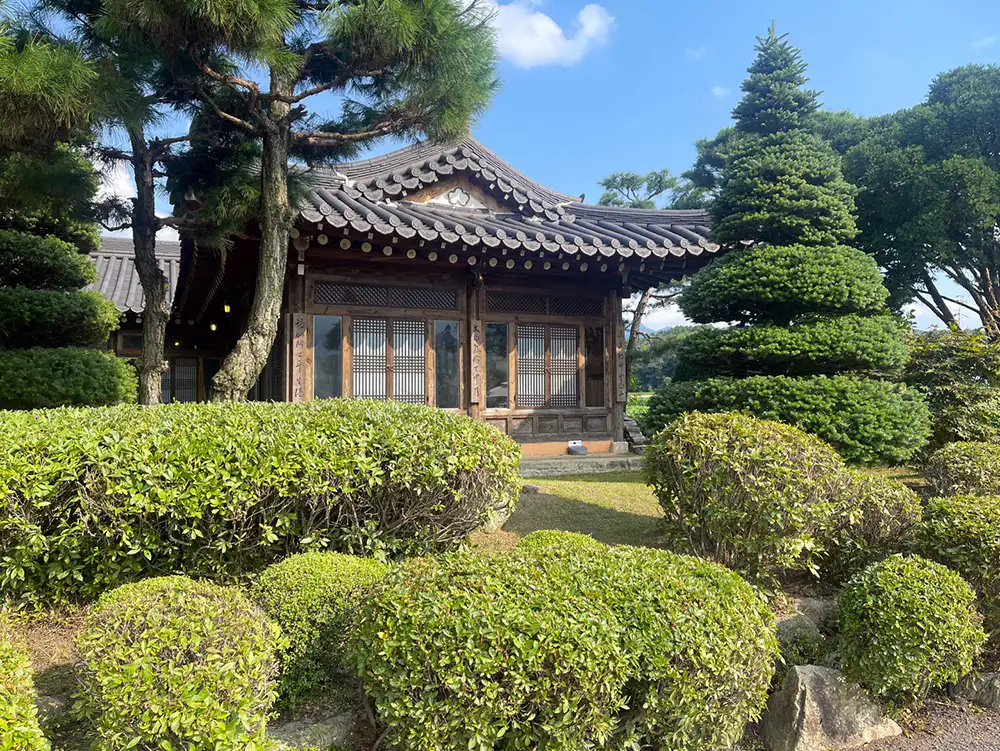
The exterior looked like a well-preserved old Korean house or cultural heritage site.
First Impressions — Authentic and Well-Maintained
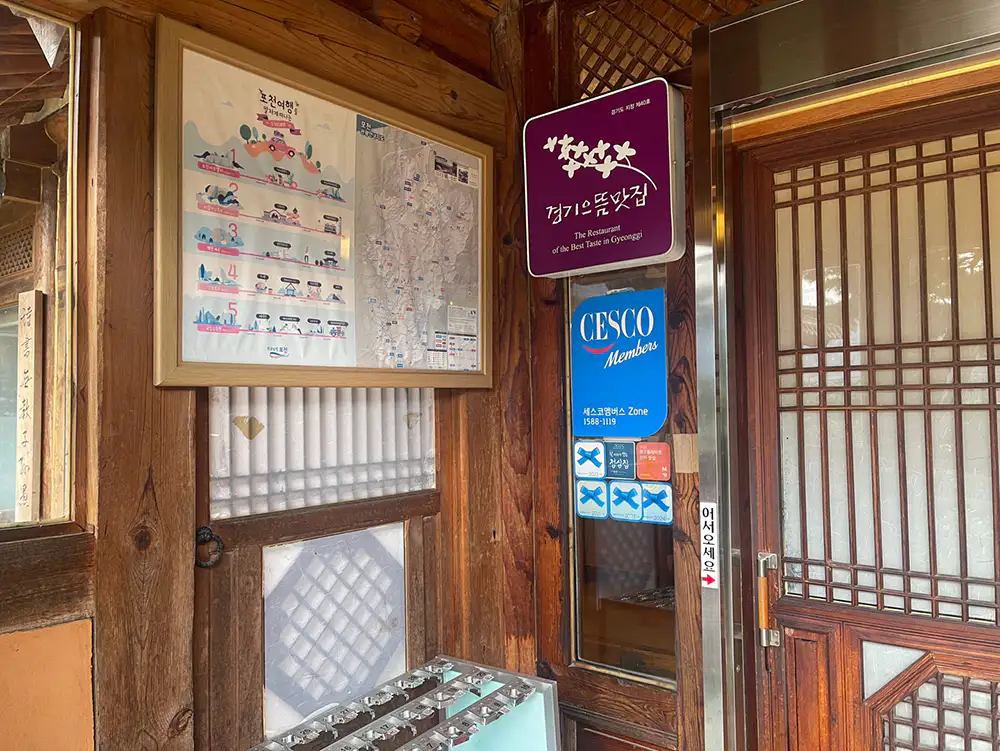
At the entrance, I noticed a vintage Pocheon travel map, slightly faded from time. It’s a nice touch for tourists who may want to adjust their travel plans after eating here.
Next to the door were several certification signs and stickers:
- Gyeonggi “Excellent Restaurant” award
- Blue Ribbon Survey (listed in 2021, 2022, 2023, 2024)
- Featured in “Lunch Places Worth Visiting” (2015)
- Mango Plate Popular Restaurant (2023)
These badges inspired more confidence than celebrity photos, showing recognition from trusted food reviewers.
Ordering Food
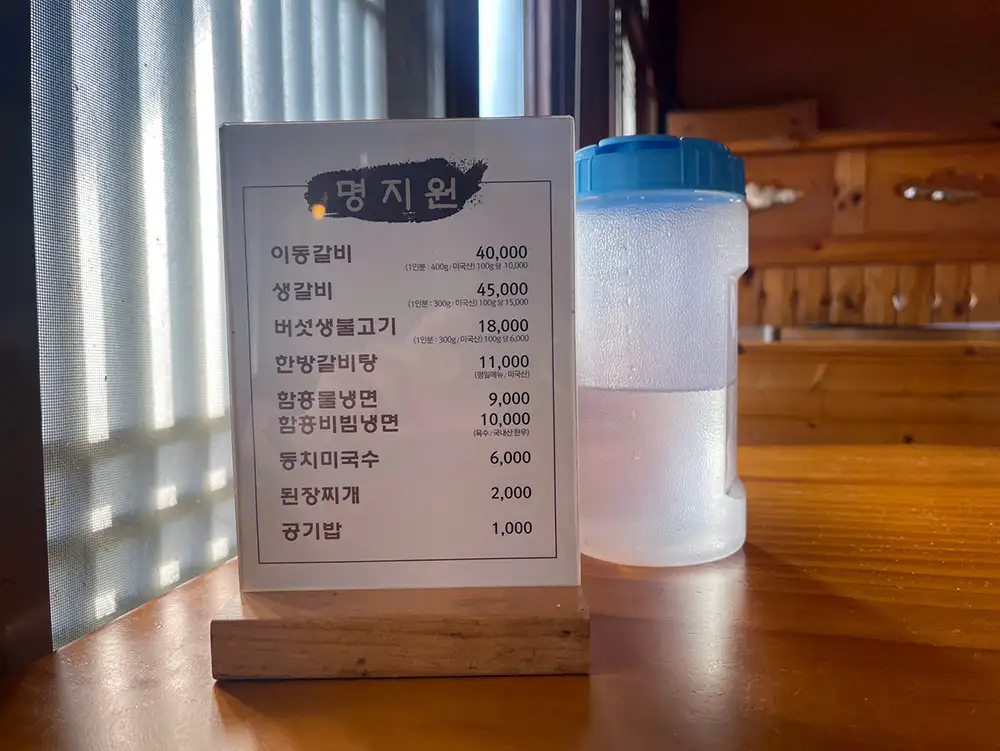
Inside, the restaurant was larger than expected, shaped like a Korean “ㄷ” layout.
Since I arrived after peak lunch hour, I easily found a seat by the window.
The main menu is Idong Galbi, but they also serve:
Fresh Galbi
Mushroom Bulgogi
Herbal Galbitang
Hamheung Cold Noodles (mul-naengmyeon, bibim-naengmyeon)
Dongchimi Cold Noodles
Doenjang-jjigae
Steamed Rice
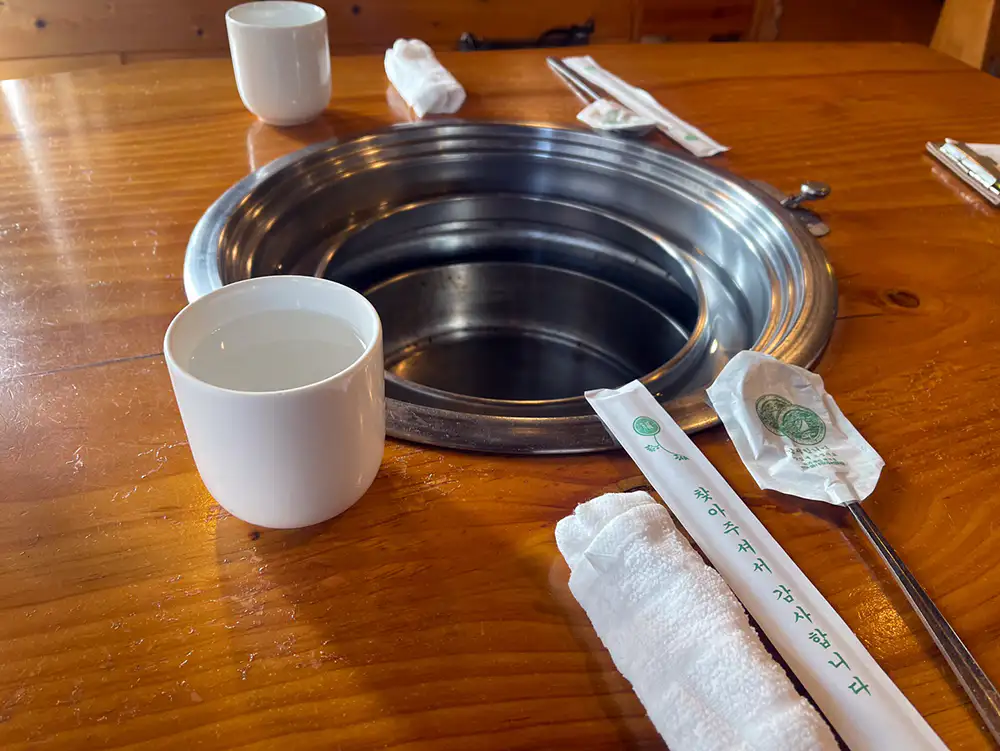
I ordered:
3 servings of Idong Galbi
1 Mul-naengmyeon
1 Bibim-naengmyeon
1 Doenjang-jjigae
1 bowl of rice
Total: 142,000 KRW
Side Dishes
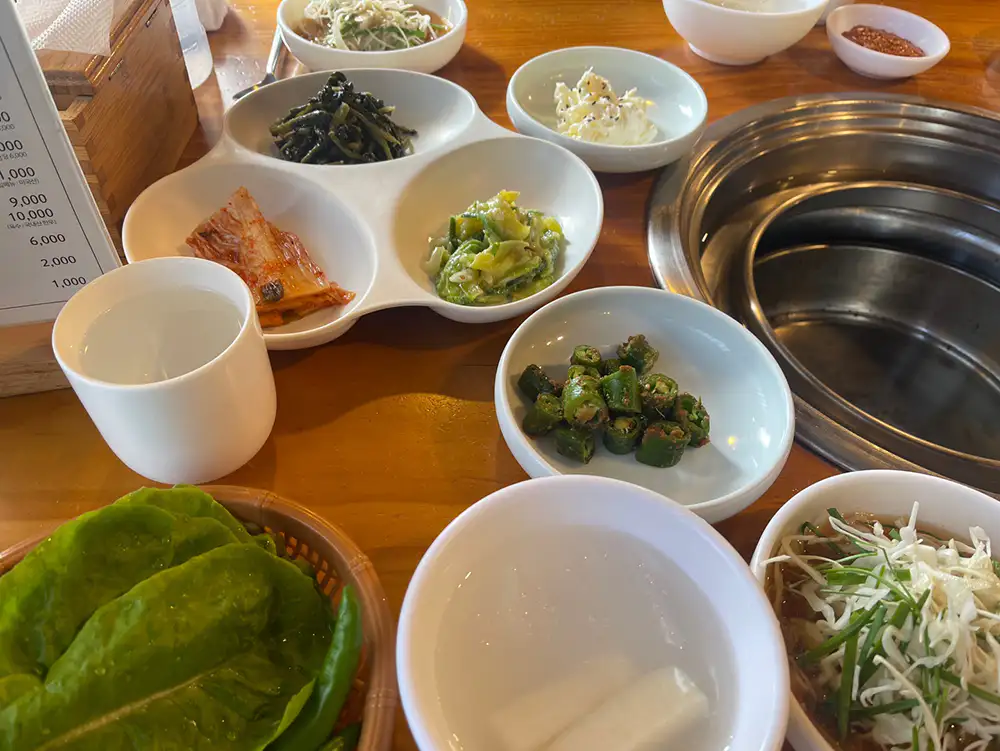
The side dishes arrived quickly. I remembered hearing that Myeongjiwon’s marinade and most ingredients—such as rice, vegetables, and chili pepper flakes—are grown directly by the owner.
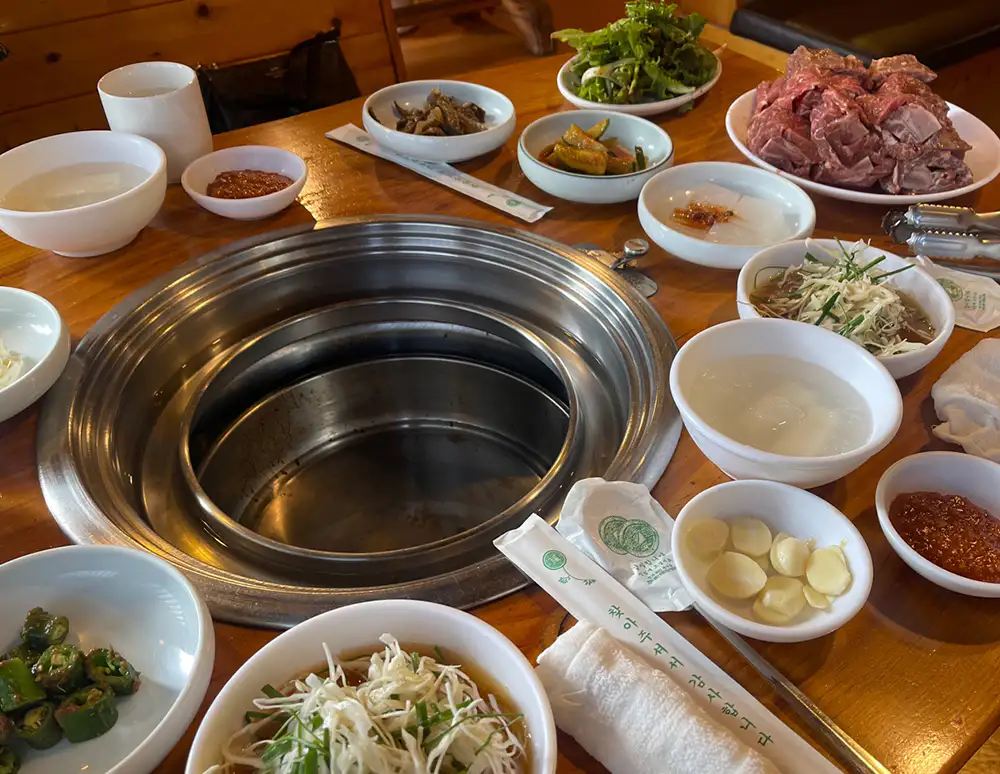
The kimchi tasted like homemade kimchi from childhood—simple, clean, and delicious.
Soon the entire table filled with dishes, leaving almost no empty space.
Even eating the side dishes with rice alone would make a satisfying meal.
The Idong Galbi Experience
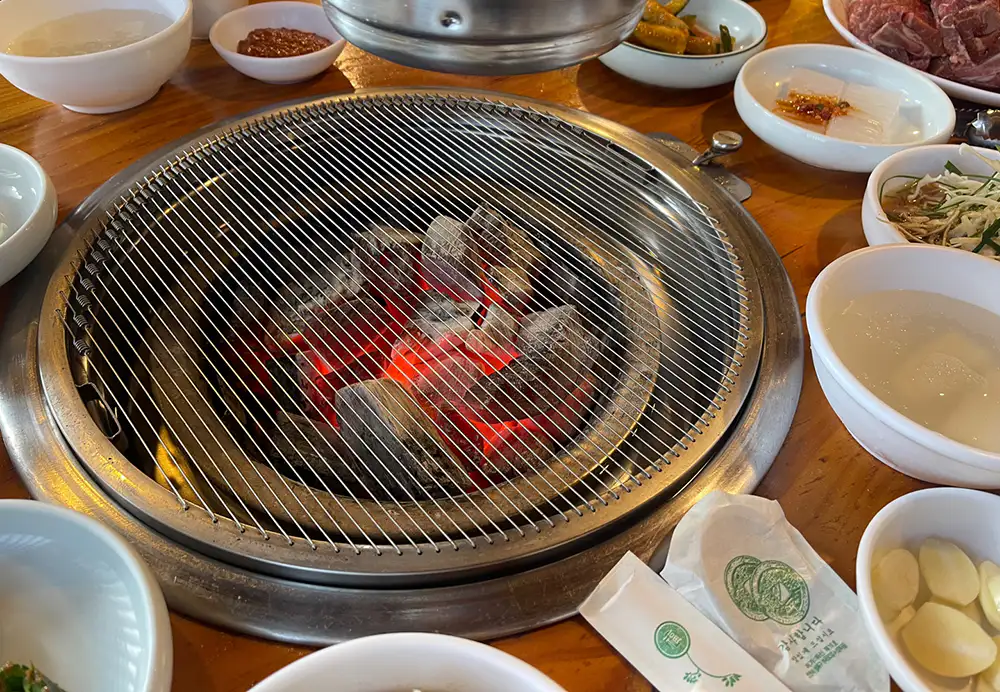
A grill with charcoal was brought to the table, and we began cooking the marinated galbi piled high on the plate.
In the early days, Idong Galbi was the inexpensive “jjok-galbi” made for soldiers. But today, restaurants serve full-sized galbi cuts, as people can now enjoy higher-quality meat.
The galbi at Myeongjiwon was tender, flavorful, and grilled beautifully over charcoal.
Extra Dishes
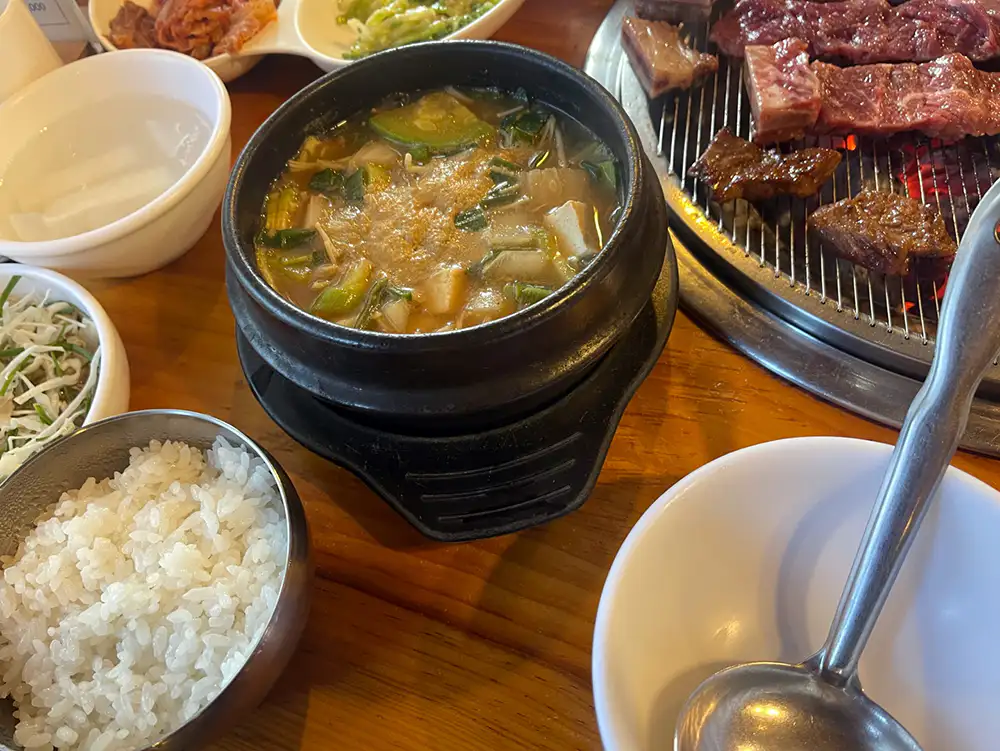
Doenjang-jjigae (2,000 KRW)
I thought it might be complimentary, but it’s a separate dish.
Still, it was rich and tasty enough to finish completely.
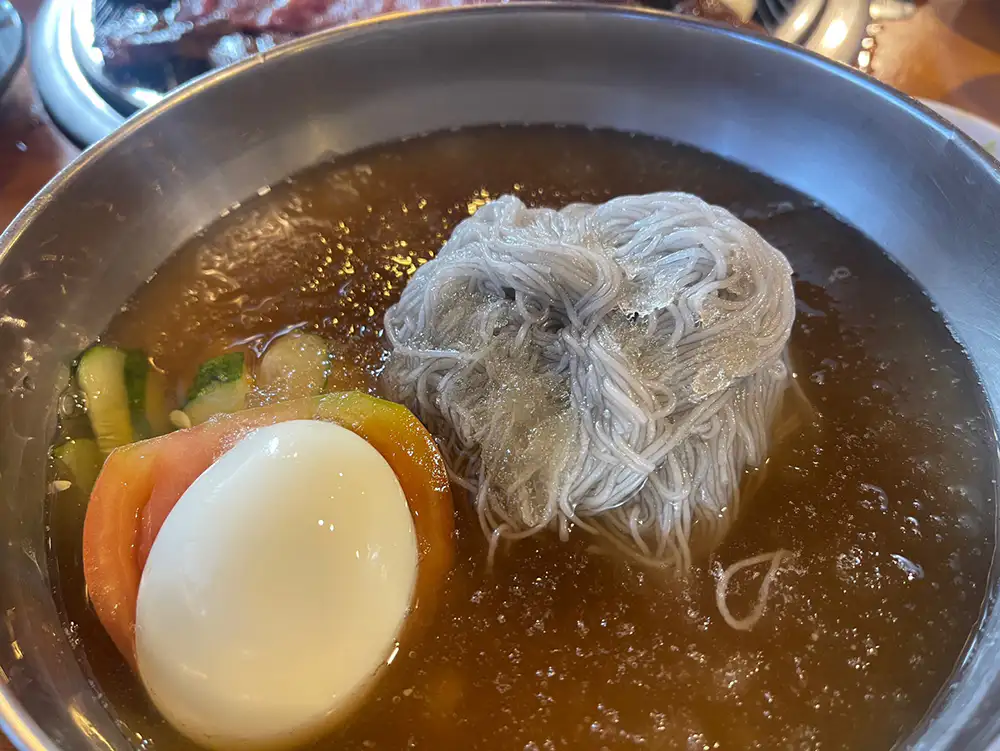
Mul-naengmyeon (9,000 KRW)
Surprisingly, it included a slice of tomato in the broth—a unique touch.
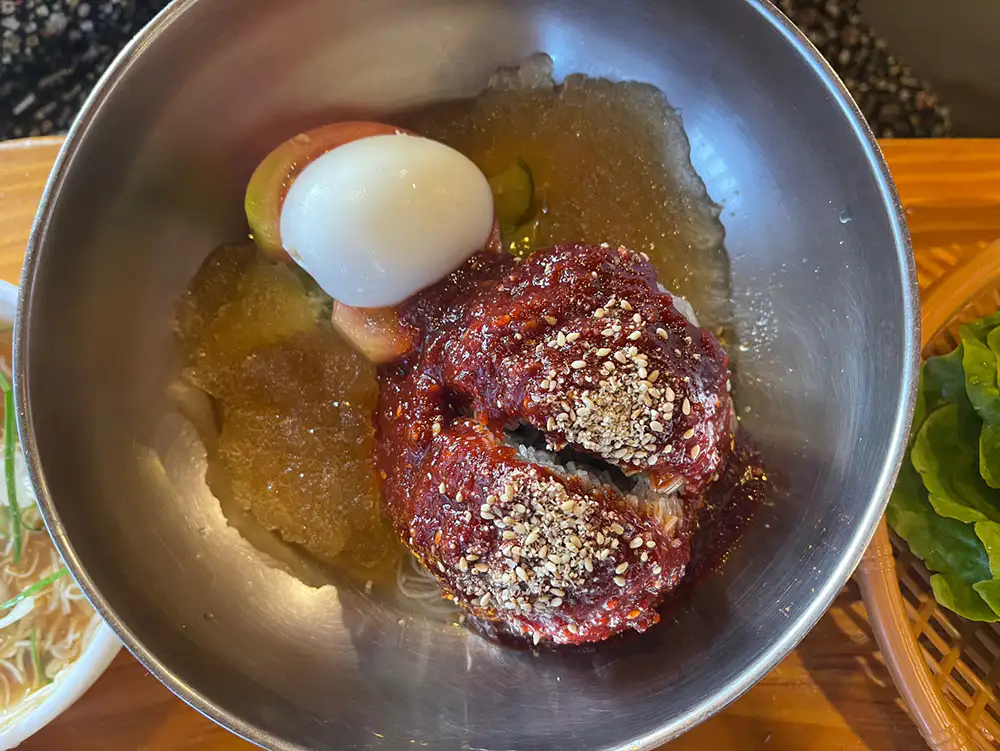
Bibim-naengmyeon (10,000 KRW)
Also included tomato.
I once had disappointing, soggy noodles at another Idong Galbi place, so I was worried.
But Myeongjiwon’s noodles were perfectly chewy and neatly prepared.
Dessert — Ice-Cooled Sujeonggwa
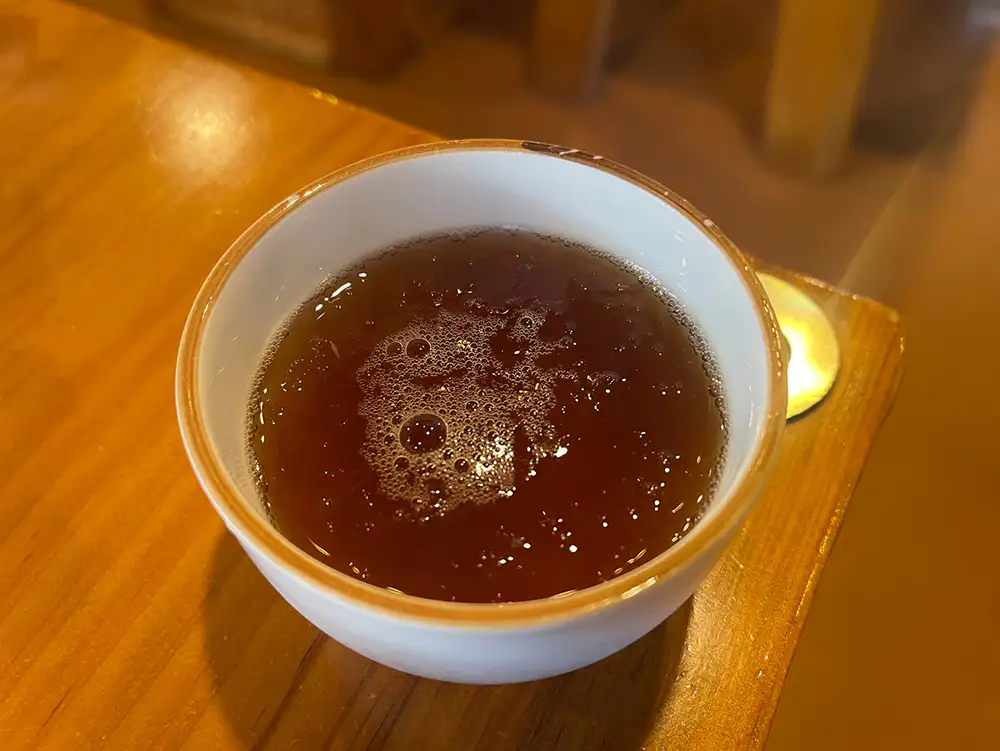
After finishing the meat, noodles, and doenjang-jjigae, the staff brought out chilled sujeonggwa (cinnamon punch) with crushed ice.
It was refreshing and not too sweet—so good that I wanted another cup.
The servers were mostly foreigners, and although Korean may not be easy for them, they served everything calmly and politely.
A Summer Visit
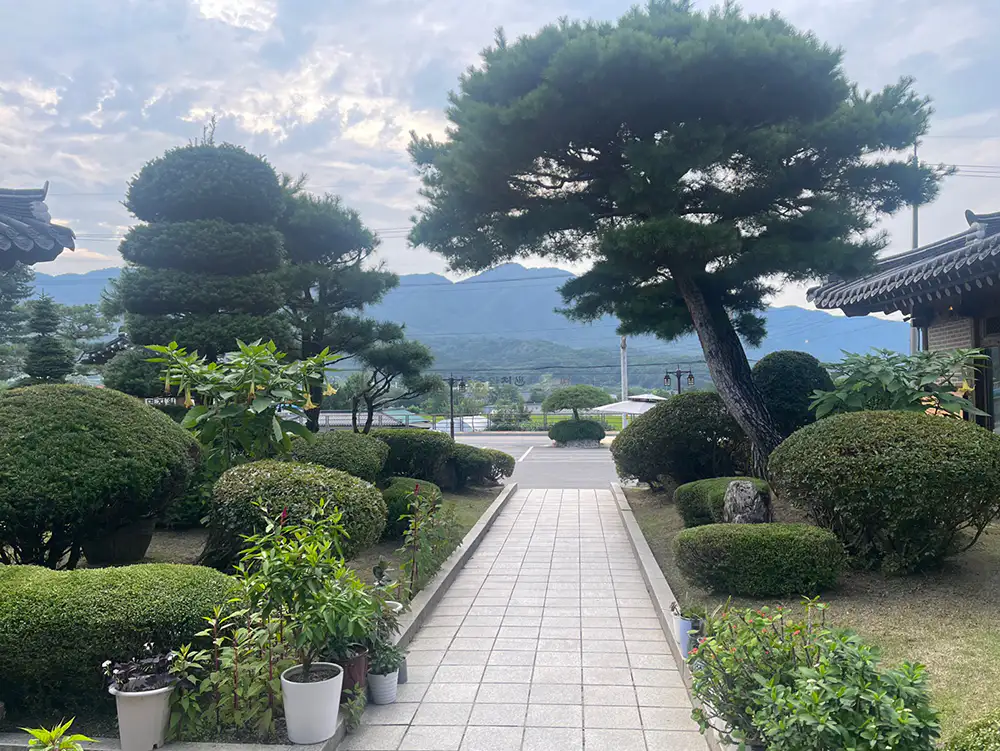
When I stepped outside after the meal, the heat was still intense.
But the sky and sunlight already felt like early autumn.
Despite the temperature, the atmosphere hinted that the season was changing.
📍 Restaurant Information
Name: Myeongjiwon
Address: 1258 Hwadong-ro, Idong-myeon, Pocheon-si, Gyeonggi-do, South Korea
Reservation – [ Link ]
Introducing another restaurant
